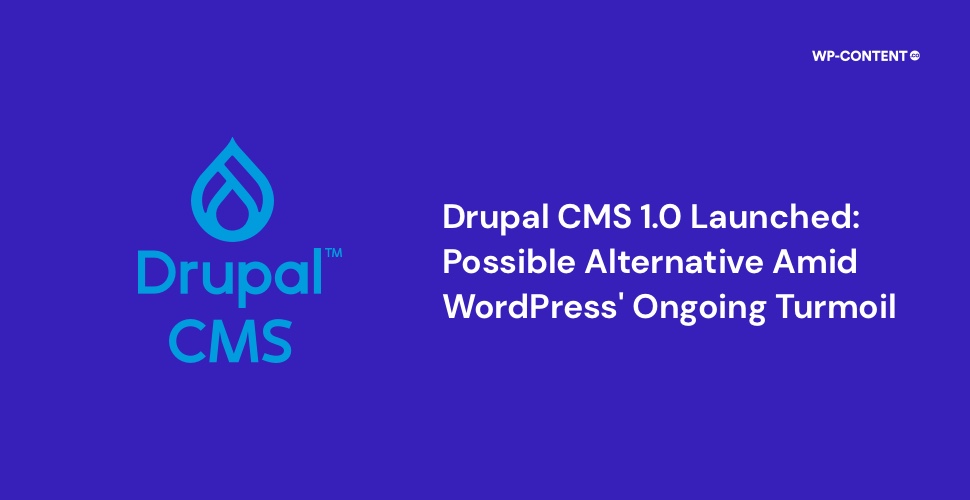With the recent turmoil in the WordPress ecosystem, including legal battles and community unrest, many users are seeking alternatives. Enter Drupal CMS 1.0, launched on January 15, 2025, to celebrate Drupal’s 24th anniversary, may offer a compelling option for migration.
This new version, built on Drupal 11, is designed to empower marketers, designers, and content creators, by offering a wide range of inbuilt tools and features to streamline their online journey.
Drupal CMS 1.0 is tailored for those looking to build websites quickly and economically, a niche traditionally dominated by WordPress.
Why Drupal CMS?
Drupal CMS 1.0 is tailored for those looking to build websites quickly and economically, a niche traditionally dominated by WordPress. It includes features such as AI tools, built-in marketing and privacy tools, accessibility features, pre-configured recipes for quick site setup, and automatic security updates. Users can now choose between Drupal CMS and Drupal Core, depending on their needs.

With Matt Mullenweg suggesting that lawsuits could bankrupt him or force the closure of WordPress.org, the statement has sparked widespread discussion within the community. Filling the void left by such a major open-source platform will be no small task for any competitor that can deliver what WordPress does.
The ongoing turmoil in the WordPress ecosystem that started way back last year has had its ripple effects on the community, leaving many users questioning the platform’s stability and future.
Given the uncertainty surrounding WordPress’ future, this is where Drupal CMS may emerge as a strong alternative.
Project inception
The Drupal CMS stems from the Drupal Starshot initiative which was introduced by Dries Buytaert in DrupalCon Portland 2024. Dries said that the idea was to make Drupal more accessible and easier to use, “While Drupal is celebrated for its robustness, it can be challenging for newcomers, especially those with limited technical expertise. So in my keynote, I was excited to introduce Drupal Starshot, our “Moonshot” to make Drupal more accessible and easier to use.”
Later, the name Drupal CMS was selected after feedback from both newcomers and experienced users. As said by Dries, “The goal of Drupal CMS is to set the standard for no-code website building. It will allow non-technical users, like marketers, content creators, and site builders, to create digital experiences with ease, without compromising on the power and flexibility that Drupal is known for.”
Key features of Drupal CMS
Content authoring
Create and publish new pages with a WYSIWYG editor, track content revisions, and customize various content types.
Admin dashboard
The dashboard, as anticipated, offers access to various menus for site administration, includes a search feature, and comes with UI customizations.

AI features
Includes the Drupal Agent Chatbot and the ability to generate alt text for images with AI.
SEO tools
Real-time SEO analysis, SEO checklist, meta tag customization, and automatic HTML and sitemap generation.
Accessibility and security
WCAG AA-compliant front-end interface, content accessibility tools, and privacy and consent management tools.
The Community Response
Given the recent developments in the WordPress ecosystem, Drupal CMS 1.0 is emerging as a viable alternative. Chris Teitzel tweeted about the potential of Drupal CMS as a new choice for those looking to move away from WordPress.
Daniel Hayes Smith and Storm Barnicle also expressed their support for Drupal CMS on X.



